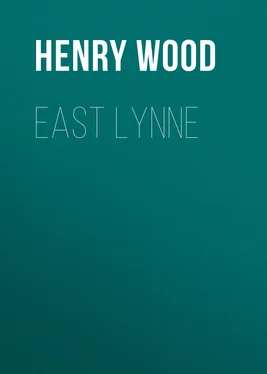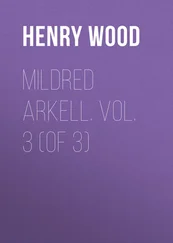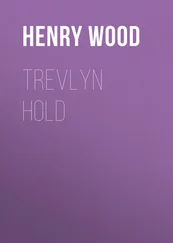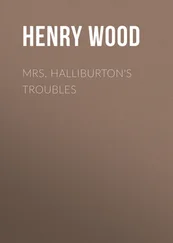Henry Wood - East Lynne
Здесь есть возможность читать онлайн «Henry Wood - East Lynne» — ознакомительный отрывок электронной книги совершенно бесплатно, а после прочтения отрывка купить полную версию. В некоторых случаях можно слушать аудио, скачать через торрент в формате fb2 и присутствует краткое содержание. Жанр: foreign_prose, literature_19, foreign_antique, на английском языке. Описание произведения, (предисловие) а так же отзывы посетителей доступны на портале библиотеки ЛибКат.
- Название:East Lynne
- Автор:
- Жанр:
- Год:неизвестен
- ISBN:нет данных
- Рейтинг книги:5 / 5. Голосов: 1
-
Избранное:Добавить в избранное
- Отзывы:
-
Ваша оценка:
- 100
- 1
- 2
- 3
- 4
- 5
East Lynne: краткое содержание, описание и аннотация
Предлагаем к чтению аннотацию, описание, краткое содержание или предисловие (зависит от того, что написал сам автор книги «East Lynne»). Если вы не нашли необходимую информацию о книге — напишите в комментариях, мы постараемся отыскать её.
East Lynne — читать онлайн ознакомительный отрывок
Ниже представлен текст книги, разбитый по страницам. Система сохранения места последней прочитанной страницы, позволяет с удобством читать онлайн бесплатно книгу «East Lynne», без необходимости каждый раз заново искать на чём Вы остановились. Поставьте закладку, и сможете в любой момент перейти на страницу, на которой закончили чтение.
Интервал:
Закладка:
“No reflection on them,” returned Mr. Carlyle. “This was a young man, three or four and twenty, a head taller than either. I thought it might be a relative.”
“I have repeatedly heard them say that they are alone in the world; that they are the two last of the name. Depend upon it, it was nobody connected with them;” and wishing Mr. Carlyle good-night, he departed.
The servant came in to remove the glasses and the obnoxious pipes. Mr. Carlyle sat in a brown study; presently he looked round at the man.
“Is Joyce gone to bed?”
“No, sir. She is just going.”
“Send her here when you have taken away those things.”
Joyce came in—the upper servant at Miss Carlyle’s. She was of middle height, and would never see five and thirty again; her forehead was broad, her gray eyes were deeply set, and her face was pale. Altogether she was plain, but sensible-looking. She was the half-sister of Afy Hallijohn.
“Shut the door, Joyce.”
Joyce did as she was bid, came forward, and stood by the table.
“Have you ever heard from your sister, Joyce?” began Mr. Carlyle, somewhat abruptly.
“No, sir,” was the reply; “I think it would be a wonder if I did hear.”
“Why so?”
“If she would go off after Richard Hare, who had sent her father into his grave, she would be more likely to hide herself and her doings than to proclaim them to me, sir.”
“Who was that other, that fine gentleman, who came after her?”
The color mantled in Joyce’s cheeks, and she dropped her voice.
“Sir! Did you hear of him?”
“Not at that time. Since. He came from Swainson, did he not?”
“I believe so, sir. Afy never would say much about him. We did not agree upon the point. I said a person of his rank would do her no good; and Afy flew out when I spoke against him.”
Mr. Carlyle caught her up. “His rank. What was his rank?”
“Afy bragged of his being next door to a lord; and he looked like it. I only saw him once; I had gone home early, and there sat him and Afy. His white hands were all glittering with rings, and his shirt was finished off with shining stones where the buttons ought to be.”
“Have you seen him since?”
“Never since, never but once; and I don’t think I should know him if I did see him. He got up, sir, as soon as I went into the parlor, shook hands with Afy, and left. A fine, upright man he was, nearly as tall as you, sir, but very slim. Those soldiers always carry themselves well.”
“How do you know he was a soldier?” quickly rejoined Mr. Carlyle.
“Afy told me so. ‘The Captain’ she used to call him; but she said he was not a captain yet awhile—the next grade to it, a—a–”
“Lieutenant?” suggested Mr. Carlyle.
“Yes, sir, that was it—Lieutenant Thorn.”
“Joyce,” said Mr. Carlyle, “has it never struck you that Afy is more likely to have followed Lieutenant Thorn than Richard Hare?”
“No, sir,” answered Joyce; “I have felt certain always that she is with Richard Hare, and nothing can turn me from the belief. All West Lynne is convinced of it.”
Mr. Carlyle did not attempt to “turn her from her belief.” He dismissed her, and sat on still, revolving the case in all its bearings.
Richard Hare’s short interview with his mother had soon terminated. It lasted but a quarter of an hour, both dreading interruptions from the servants; and with a hundred pounds in his pocket, and desolation in his heart, the ill-fated young man once more quitted his childhood’s home. Mrs. Hare and Barbara watched him steal down the path in the telltale moonlight, and gain the road, both feeling that those farewell kisses they had pressed upon his lips would not be renewed for years, and might not be forever.
CHAPTER VII
MISS CARLYLE AT HOME
The church clocks at West Lynne struck eight one lovely morning in July, and then the bells chimed out, giving token that it was Sunday.
East Lynne had changed owners, and now it was the property of Mr. Carlyle. He had bought it as it stood, furniture and all; but the transfer had been conducted with secrecy, and was suspected by none, save those engaged in the negotiations. Whether Lord Mount Severn thought it might prevent any one getting on the scent, or whether he wished to take farewell of a place he had formerly been fond of, certain it is that he craved a week or two’s visit to it. Mr. Carlyle most readily and graciously acquiesced; and the earl, his daughter, and retinue had arrived the previous day.
West Lynne was in ecstacies. It called itself an aristocratic place, and it indulged hopes that the earl might be intending to confer permanently the light of his presence, by taking up his residence again at East Lynne. The toilettes prepared to meet his admiring eyes were prodigious and pretty Barbara Hare was not the only young lady who had thereby to encounter the paternal storm.
Miss Carlyle was ready for church at the usual time, plainly, but well dressed. As she and Archibald were leaving their house, they saw something looming up the street, flashing and gleaming in the sun. A pink parasol came first, a pink bonnet and feather came behind it, a gray brocaded dress and white gloves.
“The vain little idiot!” ejaculated Miss Carlyle. But Barbara smiled up the street toward them, unconscious of the apostrophe.
“Well done, Barbara!” was the salutation of Miss Carlyle. “The justice might well call out—you are finer than a sunbeam!”
“Not half so fine as many another in the church will be to-day,” responded Barbara, as she lifted her shy blue eyes and blushing face to answer the greetings of Mr. Carlyle. “West Lynne seems bent on out-dressing the Lady Isabel. You should have been at the milliner’s yesterday morning, Miss Carlyle.”
“Is all the finery coming out to-day?” gravely inquired Mr. Carlyle, as Barbara turned with them toward the church, and he walked by her side and his sister’s, for he had an objection, almost invincible as a Frenchman’s, to give his arm to two ladies.
“Of course,” replied Barbara. “First impression is everything, you know, and the earl and his daughter will be coming to church.”
“Suppose she should not be in peacock’s plumes?” cried Miss Carlyle, with an imperturbable face.
“Oh! But she is sure to be—if you mean richly dressed,” cried Barbara, hastily.
“Or, suppose they should not come to church?” laughed Mr. Carlyle. “What a disappointment to the bonnets and feathers!”
“After all, Barbara, what are they to us, or we to them?” resumed Miss Carlyle. “We may never meet. We insignificant West Lynne gentry shall not obtrude ourselves into East Lynne. It would scarcely be fitting—or be deemed so by the earl and Lady Isabel.”
“That’s just how papa went on,” grumbled Barbara. “He caught sight of this bonnet yesterday; and when, by way of excuse, I said I had it to call on them, he asked whether I thought the obscure West Lynne families would venture to thrust their calls on Lord Mount Severn, as though they were of the county aristocracy. It was the feather that put him out.”
“It is a very long one,” remarked Miss Carlyle, grimly surveying it.
Barbara was to sit in the Carlyle pew that day, for she thought the farther she was from the justice the better; there was no knowing but he might take a sly revengeful cut at the feather in the middle of service, and so dock its beauty. Scarcely were they seated when some strangers came quietly up the aisle—a gentleman who limped as he walked, with a furrowed brow and gray hair; and a young lady. Barbara looked round with eagerness, but looked away again; they could not be the expected strangers, the young lady’s dress was too plain—a clear-looking muslin dress for a hot summer’s day. But the old beadle in his many-caped coat, was walking before them sideways with his marshalling baton, and he marshaled them into the East Lynne pew, unoccupied for so many years.
Читать дальшеИнтервал:
Закладка:
Похожие книги на «East Lynne»
Представляем Вашему вниманию похожие книги на «East Lynne» списком для выбора. Мы отобрали схожую по названию и смыслу литературу в надежде предоставить читателям больше вариантов отыскать новые, интересные, ещё непрочитанные произведения.
Обсуждение, отзывы о книге «East Lynne» и просто собственные мнения читателей. Оставьте ваши комментарии, напишите, что Вы думаете о произведении, его смысле или главных героях. Укажите что конкретно понравилось, а что нет, и почему Вы так считаете.












